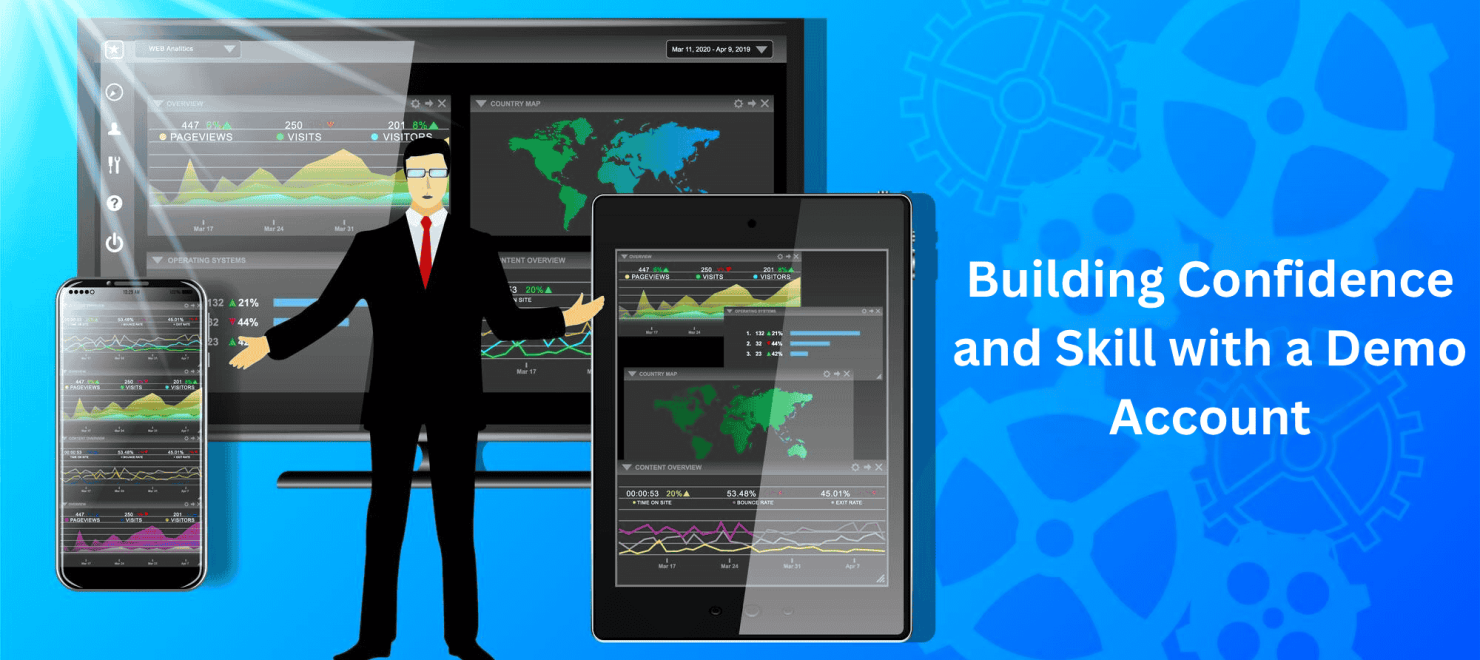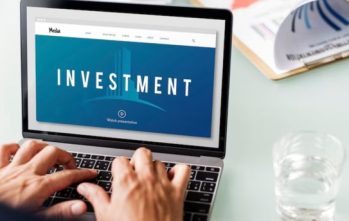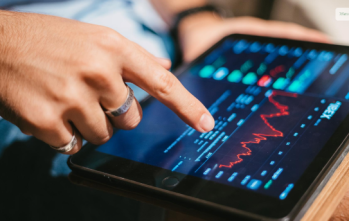Table Of Contents
Building Confidence and Skill with a Demo Account
Financial markets may appear to be a very challenging place at first glance to many future traders. The rapidity, the jargon, the stress of actual money on the line can soon disorient the novices. However, one can find a potent instrument that will help to narrow the gap between theory and practice: the demo account.
Since a demo account enables one to develop confidence and expertise in trading, it reduces the chances of losing money. Knowing how to utilize this resource to one’s advantage can turn fear into skill and give a solid ground to trading in the future.
Understanding the Purpose of a Demo Account
A demo account is simply an imitation of a real market provided by the trading platforms. It gives access to live market information and trading functionality; however, it does not operate with real money, but with virtual funds. This arrangement gives the traders an opportunity to test strategies, get to know how to trade, and familiarize themselves with market behaviour with no financial risk.
Demo account is mainly educational in nature. It is a sandbox in which traders are able to get used to the interface of the platform, receive experience with types of orders, and see the outcomes of their choices. This exposure is priceless to beginners, as it removes anxiety, breeds familiarity with the trading process, and helps to understand financial products such as stocks, forex, commodities, or indices better.
Building Confidence Through Practice
Trading confidence is not simply having familiarity with the concepts of the market, it is having confidence in your personal capabilities of making the right decisions when the pressure is on. A demo account helps an individual develop this confidence in a systematic manner. Through the simulated funds, traders are able to:
- Test strategies fearlessly: They can do testing with different trading strategies and determine what will best fit their trading style.
- Learn through errors: Every error is a great lesson, and the fact that there is no monetary cost will spur exploration and perseverance.
- Track progress: The repetition of practice enables traders to be aware of regularities of their behaviour and decision-making, their strengths, and weaknesses.
These exercises would assist traders in developing a systematic attitude towards the markets and minimize the possibility of acting in an impulsive way when switching to live trading.
Developing Technical Skills and Market Knowledge
It takes more than confidence to trade successfully; it takes skill. The best place to acquire technical competencies is through a demo account. Traders have the chance to become conversant with charting, technical indicators, and analytical functionality without having to risk actual money.
Eg: it is much easier to learn to read candlestick patterns, moving averages, and market trends when you have nothing on the line. Demo accounts can also enable traders to train on how to execute orders, to manage positions, and to simulate various situations in the market like unexpected price changes or volatile times. This experience helps to gather hands on and practical knowledge that cannot be easily obtained through books or tutorials.
Additionally, risk management knowledge is a very important skill worth being developed in a demo. Traders are able to train in setting stop-loss and take-profit, and fiddle with position sizing and leverage levels to observe their effects on the potential losses and gains. Such risk awareness lessons tend to be developed into more disciplined trading behaviour in the live markets.
Transitioning from Demo to Live Trading
Although the use of the demo accounts as a training platform is good, the moment of moving on to live trading comes with a new set of problems, the first of which is the emotional aspect of trading using real capital. Most traders do not pay enough attention to the psychological aspect of the risk, which may result in hesitation, overtrading, or fear decisions.
In order to facilitate this shift, it would be a good idea to get familiar with live trading in phases. By beginning with smaller amounts or smaller capital allocation, new traders are able to practice the strategies they developed in the simulated account as they adjust to the emotional stress of trading in reality.
The knowledge gained during a demo environment (including analytical reasoning, strategy planning, and risk management) is still a useful tool, but it works in combination with an understanding of emotional control and discipline.
It is through such a step-by-step method that traders will be certain to bridge that gap between the learning and the earning process and convert the confidence they have in the virtual environment into informed decision-making in the real markets.
Maximising the Benefits of a Demo Account
In order to maximize a demo account, traders are supposed to tackle it purposefully and in a planned way. Creating specific objectives, evaluating performance, and identifying errors are all critical. Having a trading journal, despite conducting trading online, makes it possible to give feedback on decision-making habits, ways to make it better, and support winning strategies.
Also, the traders are not supposed to treat the demo account as a game. Learning is now more efficient and closer to live trading realities by simulating real-world trading conditions (e.g., having to follow strict capital limits and having to practice disciplined risk management).
For those seeking a platform to start their trading journey, many providers offer robust demo accounts with comprehensive tools and educational resources. Interested traders can view more about demo accounts and explore the features they offer to build both confidence and competence in a risk-free environment.
Conclusion
The training on confidence and skills in trading is an exercise that needs patience, practice, and the appropriate tools. A demo account is a very important step between the theoretical information and the real experience when a trader is able to learn, test, and develop without risking money.
When traders use this resource, they are able to develop analytical skills, learn how to manage risks, and develop the confidence to be in the live markets and navigate the complexities of running live markets.
#Disclaimer: The information provided on this blog is for educational and informational purposes only and should not be construed as financial advice. I am not a licensed financial advisor. Any investment decision you make is at your own risk, and you should consult with a qualified financial advisor before making any investment decisions. This site may contain affiliate links, and I may earn a commission at no additional cost to you.
Read Also:











Leave A Comment